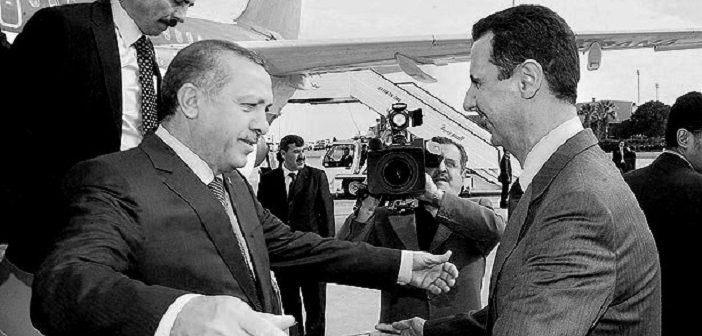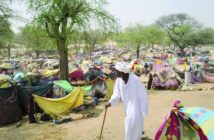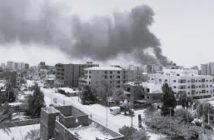The Astana meetings between Turkey, Iran and Russia successfully designated four de-escalation zones inside Syria and paved the way for a Turkish invasion of the war-ravaged country.
In August of last summer, as Aleppo was falling, Erdogan’s forces backed by the Islamist Ahrar as-Sham rebel force among others, took control of the territory lying in between the two Kurdish cantons in Northern Syria to prevent the Kurdish connection.
More Turkish intervention was anticipated by some analysts, but few on the ground believed that the Turkish Army would also move into Idlib province predominately held by Hayat Tahrir as-Sham (HTS, mainly under control of al-Nosra), to thwart further jihadi control. HTS, in fact, believed that Erdogan, who in the past let the border open for supplies for them (using the Islamists against the Syrian regime and the Kurds), wouldn’t intervene against them, a move, which would help the Assad regime. However, Turkey’s close relationship with the other big group, Ahrar al-Sham and HTS’s takeover of Idlib city set off alarm bells in Ankara that al-Qaeda (of which HTS has an unofficial relationship with) can set a decisive foothold across its borders.
The Astana meetings formalized, on paper, Turkey’s presence inside the de-escalation zones in the detriment of HTS. The 7th of October 2017, with direct Turkish support, various rebel groups launched an offensive against HTS. The same day Erdogan gave a speech to his AK Party where he declared that the invasion is facilitated by his army and that furthermore, “Russia is supporting the operation from the air”. This would bode very well for Bashar al-Assad who thanks to Russian support has turned the war to his favour.
Turkey’s turn on the most powerful rebel group (apart from the Islamic State, now defeated, and the Kurdish YPG, leader of the Syrian Democratic Forces) and its teaming up with Russia will weaken the rebels in Idlib province. This could pave the way for a political solution to the crisis and for Assad to remain in power. Most countries have already stopped calling for his ousting, viewing it as unachievable objective. Turkey has also softened its tone on regime change.
Once the biggest backers of the rebellion, Turkey has clearly changed its policy, abandoning the goals of the Syrian revolution. Nevertheless, the Idlib campaign will be a long and difficult one. The province is populated not only by different rebel groupings but also by refugees and more than a million people inhabit the area. HTS, the most important and powerful rebel force, will put on a fight and it’s highly unlikely that the group will be beaten solely by “moderate” rebels and Russian airstrikes. A more likely scenario is a direct intervention by the Turkish army as well, which has been building up its forces at the border.
Whichever way the fighting goes, Assad and his belligerents can be happy. While the rebels will now (even more) turn against each other, he can expect a calmer front. Moreover, his forces and allies can focus on the Islamic State in the East and prevent the western-backed Syrian Democratic Forces (SDF) from taking more territory.
The Presidential Palace looking over Damascus is safer today than ever since the revolution started…





